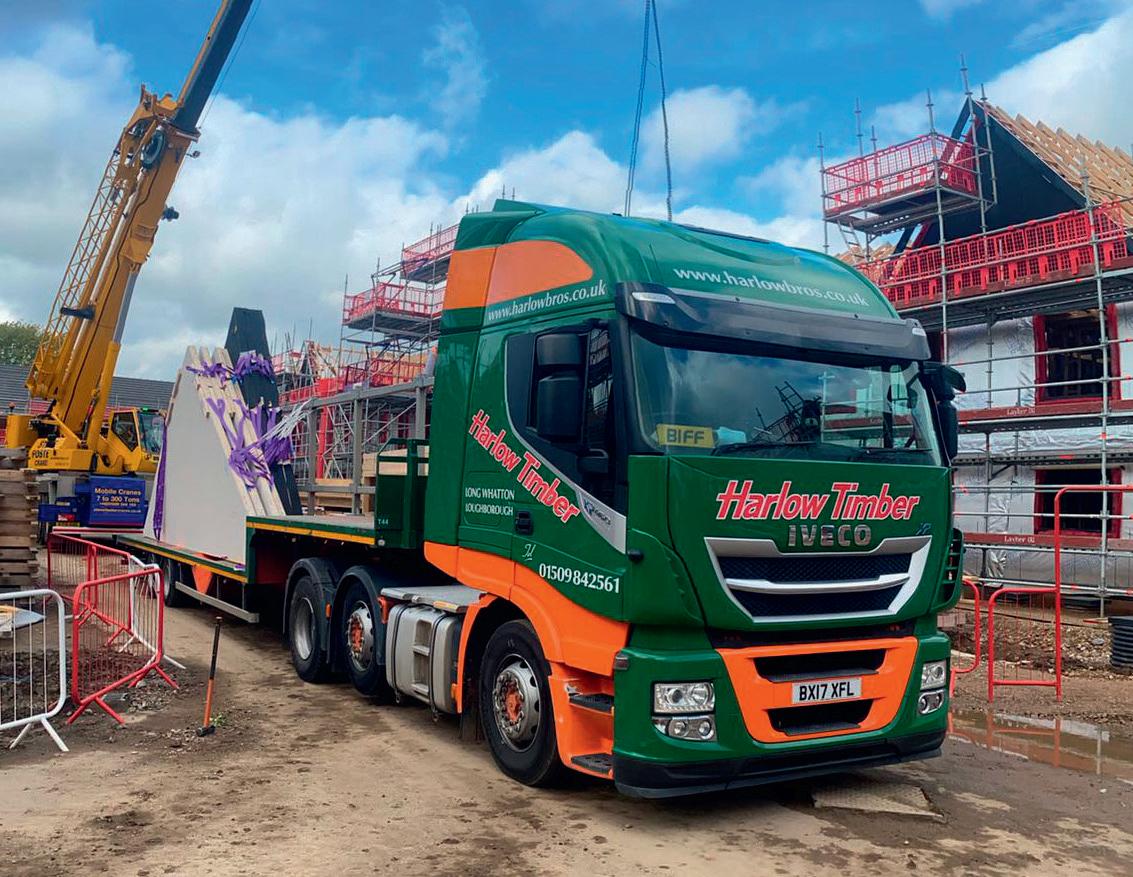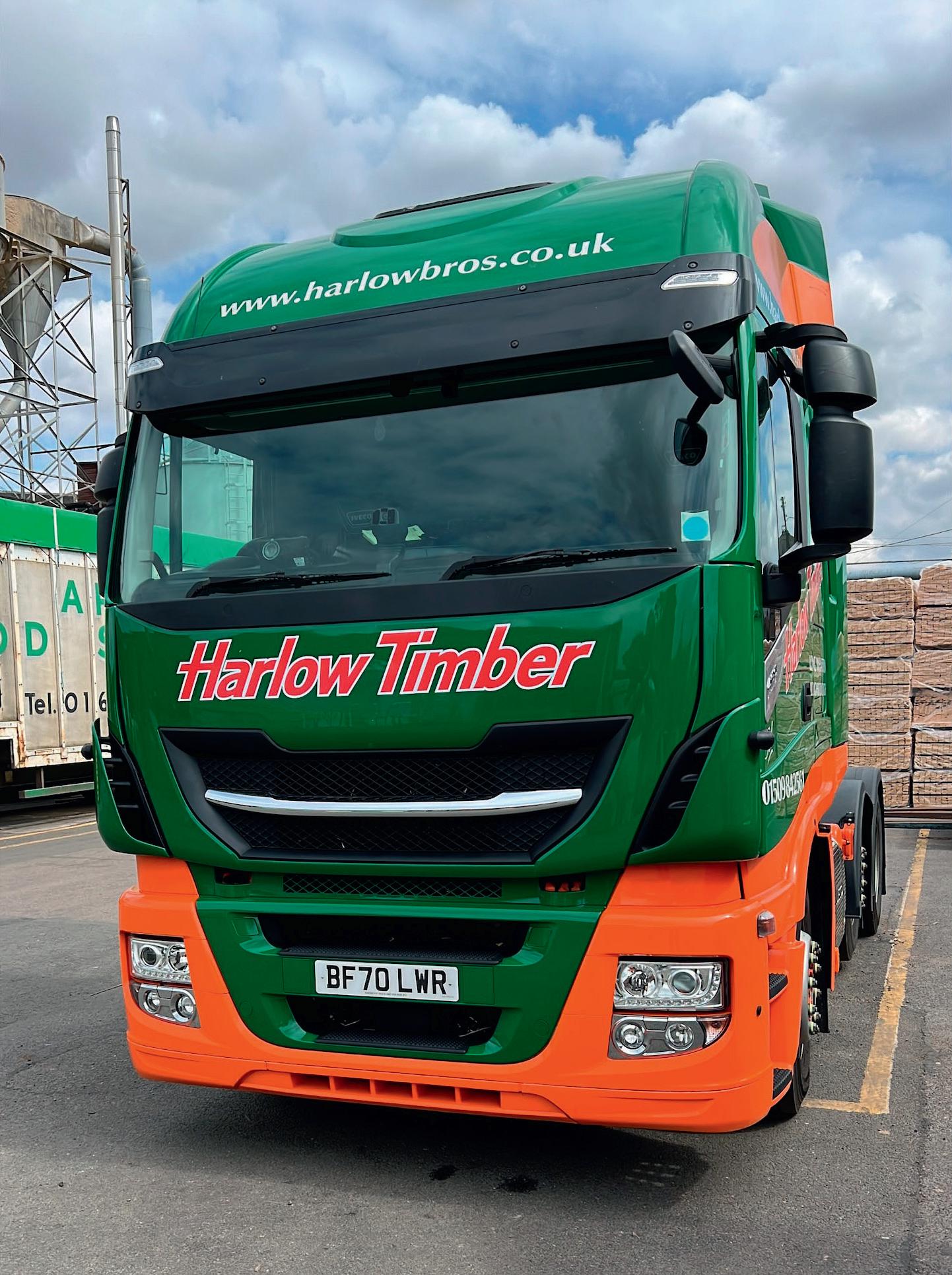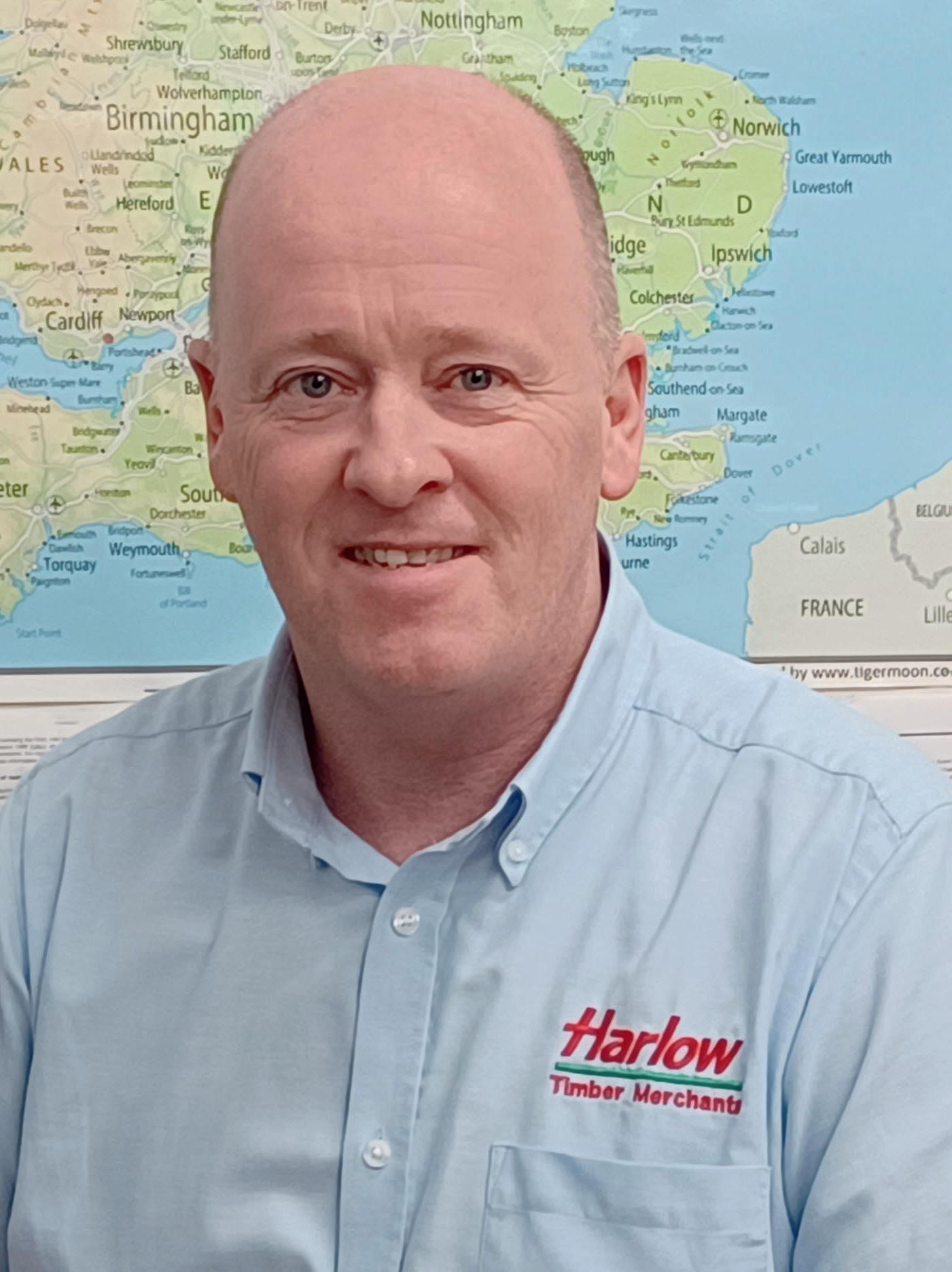
4 minute read
BRONZE TO GOLD IN ONE LEAP
from FORS Standard Winter 2022/23
by CVMP
Taking a firm from FORS Bronze straight to FORS Gold accreditation in a matter of a few months sounds like an impossible task. Yet it is one that Alan Harvey, group transport director at Leicestershire-based timber merchant Harlow Brothers, has played a vital role in achieving.
“If you put your mind to it, then you can get it done,” he smiles. “It’s possible to do a combined Silver and Gold audit and Gold means we’re at the top of our game when looking at efficiency, safety and environmental protection.”
In reaching this goal Harvey had to work with the firm’s 13 branches based primarily in the East Midlands, but also including sites in Worcestershire, Northamptonshire and Essex. “A lot of preparation had to be done beforehand,” he told us.
Getting the operation to the stage where it could achieve FORS Bronze, then progress from there, involved everything from introducing a computerised FleetCheck fleet management system, to ensuring all the company’s 55 trucks were fitted with full camera systems. It operates 15 light commercials too, including pick-ups and 3.5-tonners.
The trucks are a mixture of DAFs, Ivecos, MANs and Scanias, ranging from 7.5-, 12-, 18- and 26-tonne rigids to 44-tonne artics. As well as transporting timber to builders’ merchants, they can be called on to deliver roof trusses to building sites.
Currently chair of the Builders Merchants Federation’s transport working group, Harvey’s background has stood him in good stead.
He spent 25 years in the army, latterly at the Defence School of Transport, and his subsequent civilian career has included a spell as head of auditing at Fleet Source. Its activities include delivering Safe Urban Driving, Van Smart and LoCITY training courses – all essential activities as far as FORS is concerned.
Harvey has worked for FORS and for Travis Perkins, where he was also instrumental in helping the company achieve FORS Gold. He joined Harlow Brothers in November 2020 at a time when it had no FORS accreditation at all.
“During the first 30 days, I knew where I wanted the fleet to get to but I had to lay down the foundations,” he recalls.
“When I first arrived, the entire fleet management system was paper-based and I had to do a deep dive into the whole business. In effect we were still back in the 20th century and I realised that it all had to be computerised.
“These days, there is too much risk if you rely solely on paper and I wanted to be no more than three clicks away from the answers I was looking for.
“I wanted to know exactly what was going on with the fleet. I wanted to streamline it and I was able to use FORS as a mechanism to get it where it needed to go.”
Harvey opted for FleetCheck software because, in his view, it represents a onestop-shop that can handle pretty much anything that is fleet related. “That includes managing driver training,” he observes.
“It allows me to see red, green and amber ratings across all of my KPIs,” he adds.
The company runs its own workshop and makes use of FleetCheck Technician. Among other things, it makes it easier to plan, carry out and record statutory inspections.
“We’re achieving a 98.7 per cent firsttime MOT pass rate increasing to 100per cent on rigids,” he reports.
Computerisation has made it easier for drivers to submit reports on any faults they have found on their vehicles. “Any replacement parts needed as a consequence can be ordered and fitted, and the vehicle concerned can be back on the road the next day,” Harvey says.
“It also makes it easier for us to communicate with the drivers and inform them about new policies, procedures and practices.
“In addition, we have driver working groups that meet every three months to discuss any concerns they have and these discussions are recorded. Drivers are paid to attend.”
Priorities include the approach that should be taken to securing loads so they do not part company with the vehicle and end up in the middle of the highway. That is vitally important, says Harvey, and can be a challenge to achieve.
“Remember that we’re talking about timber rather than standard pallets,” he says. “You have to look carefully at, for example, the number of lashing straps you need to use to achieve a 5.0-tonne force at a 45-degree angle.”

His load security training initiative has ensured that the company’s forklift drivers and its truck drivers are better able to communicate with one another. Harvey also follows a policy he describes as ‘constant positive reinforcement’ to help eliminate speeding and unnecessarily harsh braking and acceleration – a FORS goal.
Pursuing it improves safety and shrinks the company’s CO2 footprint because less fuel is used. “If you can reduce diesel consumption by 9,000 litres over a quarter then that equates to a saving of almost £16,000,” he points out.
Still on the topic of safety, Harvey has visited all the branches and talked to employees about drink, drugs, sleep apnoea and the risks associated with them when are driving. “We’re doing a lot of work with Loughborough University so far as sleep apnoea is concerned,” he says.
Building a strong relationship with the company’s drivers is a priority, says Harvey, and only one has left the firm over the past couple of years.


The company is pursuing a policy of continuous professional development so far as its drivers are concerned, with 10per cent of them having progressed from a car licence to a C+E licence over the past two years.
Bonding exercises can be fun. “I took all the drivers gokarting in 2021 and got our insurers to sponsor it,” he says.
2022 saw this approach taken further. “We took all 555 of the company’s employees to Alton Towers in September.”
“There were 34 major companies that we were doing no business with at all, but potentially could have done, because we were not FORS accredited. As a consequence, we were not able to tender for their work.”
Now Harlow Brothers can – and that has to be counted as good news in these tough economic times.
Vulnerable road users
There is a case for saying that children are the most vulnerable road users of all – and it is not one Alan Harvey is prepared to neglect. That is why he took an artic down to a local primary school, hosted an assembly there, then got the 95 children to take turns standing in its blind spots and measuring safe stopping distances.
“I also persuaded the entire school to visit our business to see what we do,” he says. ■










